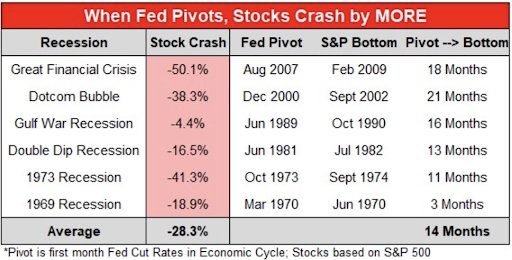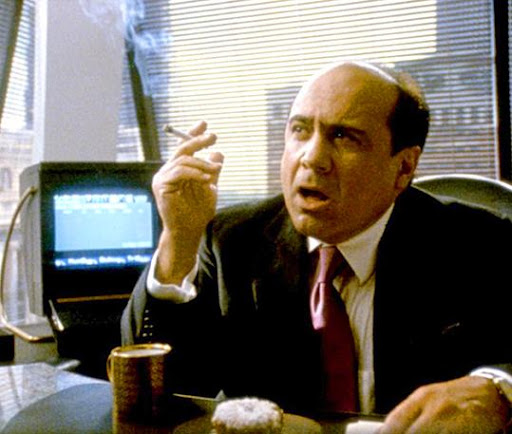It’s a tricky market, one full of volatility and uncertainty. Over the past month, the markets tanked on the hawkish words of Federal Reserve Chair Jerome Powell on Nov. 2… then rallied the following week because inflation was only 7.7%… and then they exploded higher after Powell’s more dovish speech on Wednesday.
The job markets are cooling off. But gross domestic product estimates for Q3 remained strong. This is a reminder that the economy is not the stock market — and the stock market is not the economy.
There’s one important factor in the stock market that has provided a bit of a fortress for many stocks in 2022 — nearly $1 trillion in company buybacks.
What Is a Stock Buyback?
When companies have excess cash on their balance sheets, they have a few options on what to do with it… They could expand business operations, hire new workers or look for another business to purchase.
But in times of economic uncertainty — particularly due to public policy and the end of business cycles — companies might not want to spend much money. They’ll typically exhaust their capital options and explore deals and other ways to improve the business.
If those options aren’t attractive, then they’ll deploy the cash in ways that boost shareholder value.
They could pay down debt or increase the dividend and give it to shareholders. Both of these options will make the stock more attractive, boost value and reward shareholders to stick with the company in the face of economic challenges.
This leads us to the final option: buying back stock through repurchase agreements.
It works like this… The company buys stock from any shareholders who want to sell on a secondary market. The company will announce the amount of capital available to shareholders and put out an offer for a price.
Shareholders don’t have to sell… But this creates a level of demand for the stock — and since the board of directors has a duty to boost shareholder value — this is one of the easiest ways to push prices higher and reward shareholders.
In the case of dividend hikes compared to stock repurchases, the latter is my preferred economic driver. The reason is tax efficiency gains...
You see, the U.S. government taxes dividends as ordinary income, so you’ll pay taxes on that money according to your tax bracket. But when you sell stocks you’ve owned for over a year in a secondary market, that’s taxed as investment income — a lower tax rate.
But stock buybacks also come with a bit of controversy…
Things Could Get Difficult in 2023
A number of politicians believe that stock buybacks are simply a form of stock price manipulation.
I will never be able to change their opinion. They believe a company should only put that excess cash back into the business through never-ending expansion.
Of course, we know that’s not always the best option depending on the state of the economy.
But one thing is problematic… For years, companies went out to the bond market and sold large amounts of debt to bondholders at very low interest rates. Then the companies turned around and just bought a lot of stock.
Sometimes, a company might have a good reason to do this.
If you think about a company that needs to acquire talented workers and reward these employees with stock options, they need to slow down the dilution of shares if these employees exercise those options. And buying back stock and retiring it — or holding it as Treasury shares — is a way to handle that issue.
That doesn’t always work. This year, Meta Platforms Inc. (Nasdaq: META) — again rewarding many workers with option agreements — spent $45 billion on stock buybacks when shares hit $330. Today, that stock is trading at roughly $100 per share, reflecting poor use of the company’s cash.
In addition, the world of buybacks could hit a serious wall in the years ahead. Goldman Sachs says companies had allocated $1 trillion for buybacks in 2022…
Can that continue in 2023, when interest rates could scream higher — and companies can no longer borrow at cheap levels?
Meanwhile, Congress recently pushed a provision in the Inflation Reduction Act that will impact the future of buybacks, a 1% tax on corporate buybacks for companies.
While that isn’t a significant sum, it will have an impact on corporate decisions at a time when they determine how to manage their capital. This tax could push companies to act differently — either hiking their dividend or paying down debt.
And there begs a deeper question for the market…
What happens if a large amount of this corporate demand for buybacks dips, creating additional liquidity challenges for the equity markets?
Remember, the Fed is aggressively peeling back its balance sheet this year, creating liquidity pressures in the U.S. bond markets. That capital had spilled over to the U.S. equity markets for 13 years since the Fed started Operation Twist in 2009.
We might see a little more pressure… as more companies keep their powder dry.
Enjoy your day,
Garrett




